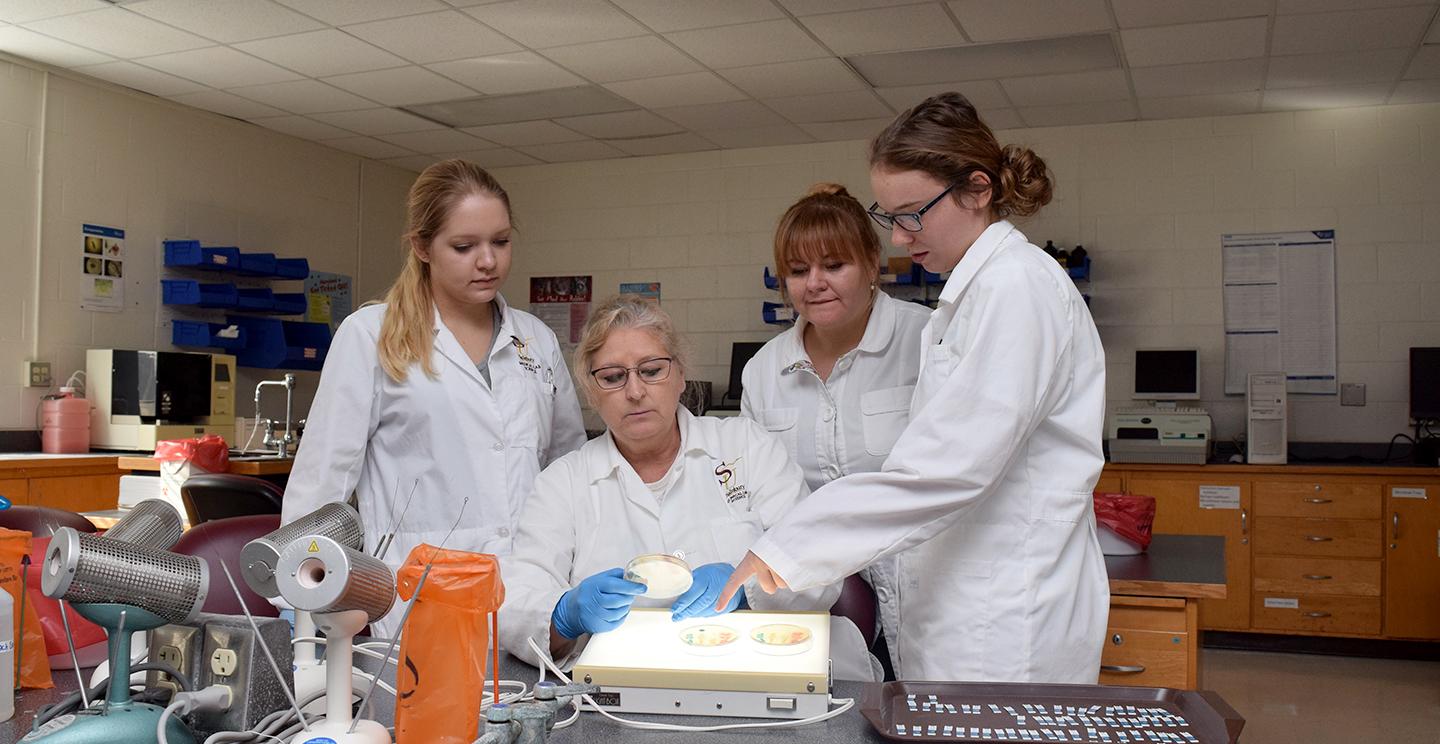Meet Jane
An SU Medical Lab Science Program graduate in action at the John Hopkins microbiology lab.

Salisbury University offers a number of minors within the medical laboratory science program, including a minor in clinical microbiology. Clinical microbiology is the study of any microbes that can cause infection in humans. Microbiologists traditionally work in laboratory research settings but can also work as members of interdisciplinary teams in hospitals, clinics, universities, industry and government. In addition to lab work, other topics include human bacterial, viral, fungal and parasitic pathogens; diagnostic specimens; microbial identification techniques; and diagnostic immunology.
Clinical microbiology is a minor in the discipline of medical laboratory science (MLS). It allows you to complete the on-campus classes in clinical biochemistry, with this recognition posted on your transcript.
The minor in clinical microbiology gives you the option to select just that one area of medical laboratory science (MLS) to study. The graduate of the MLS major is called a “generalist” and can practice in the areas of clinical biochemistry, hematology, transfusion services, immunology and clinical microbiology. The minor allows study in clinical microbiology, without taking all of the program courses.
The minor includes general principles of human physiology and clinical laboratory operation as well as microbiology topics such as human bacterial, viral, fungal and parasitic pathogens, diagnostic specimens, microbial identification techniques, diagnostic immunology, etc.
Students majoring in MLS are given the first seats in any course. Students who wish to pursue a minor may apply for any remaining slots.
For a more in-depth study, learn more about SU’s medical laboratory science major.
An SU Medical Lab Science Program graduate in action at the John Hopkins microbiology lab.